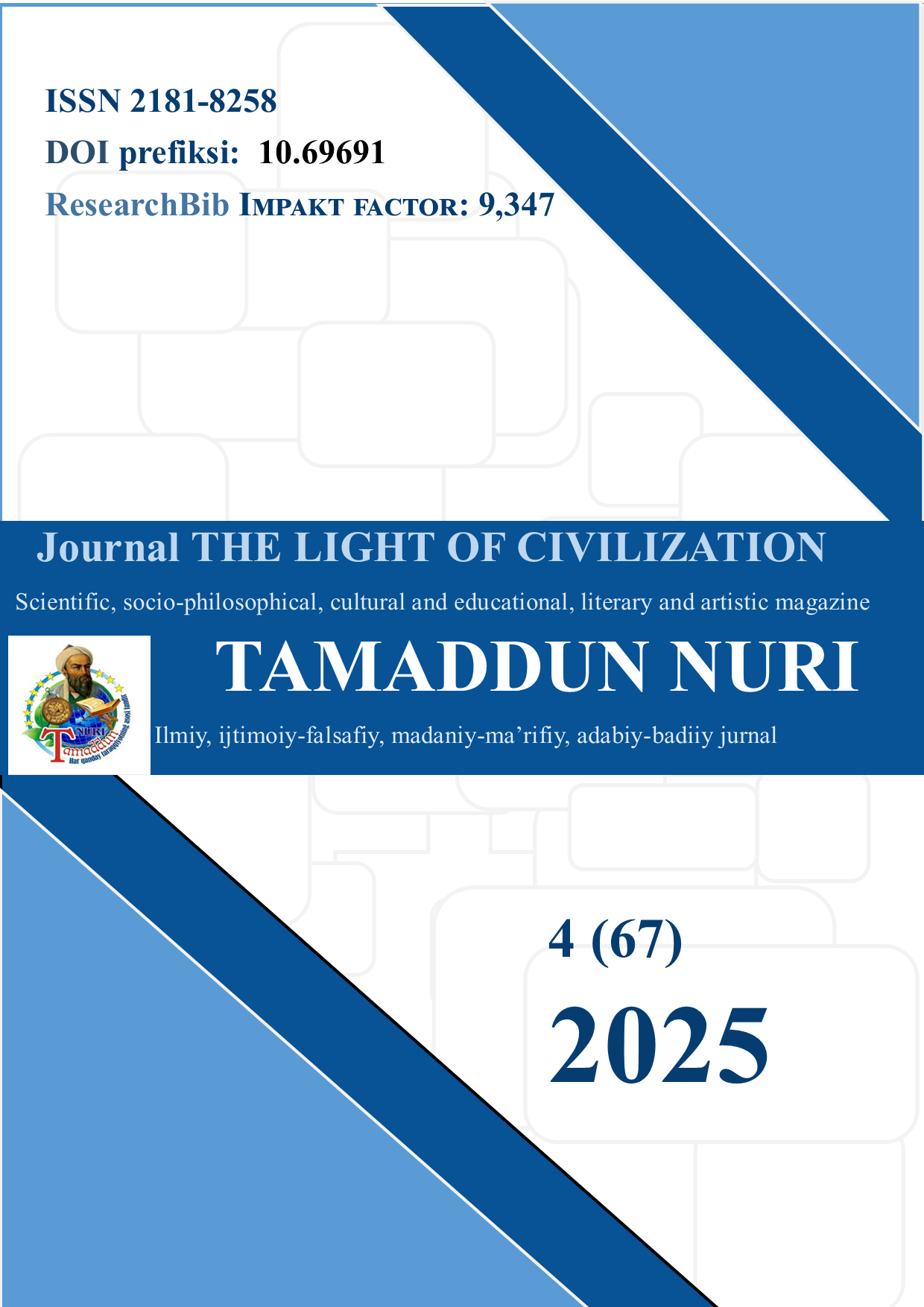РОЛЬ ПРАГМАТИКИ В МЕЖКУЛЬТУРНОЙ КОММУНИКАЦИИ С АКЦЕНТОМ НА ВЕЖЛИВОСТЬ
DOI:
https://doi.org/10.69691/5vd1kg56Ключевые слова:
прагматика, уважительность, кросскультурная коммуникация, негативная вежливость, акты коммуникации, прагматическая осведомлённость, вариативность культурных установок..Аннотация
В данной статье анализируется влияние прагматических механизмов на культурно обусловленное общение с приоритетным рассмотрением на феномен вежливости. В особенности акцентируется внимание на диссонанс в рамках позитивной и негативной вежливости в англоязычной и русскоязычной коммуникации. Статья подчеркивает внимание на важности развития межэтнической прагматической квалификации с целью речевых недоразумений и улучшения эффективности взаимосвязи в контексте языкового многообразия.
Библиографические ссылки
Brown, P., & Levinson, S. (1987). Politeness: Some universals in language usage. Cambridge: Cambridge University Press.
Bargiela-Chiappini, F. (2003). Face and politeness in intercultural communication. In Pragmatics and Language Learning (Vol. 10, pp. 72-84).
Gudykunst, W. B. (2004). Bridging differences: Effective intergroup communication. Thousand Oaks, CA: Sage Publications.
Larina Tatyana Viktorovna(2003).The category of politeness in the aspect of intercultural communication: Based on the material of English and Russian communicative cultures.
Najmiddinova N.G., (2024), “The Integration of Artificial Intelligence (AI) into education system”, Tamaddun Nuri, ISSN 2181-8258, 12(63), 34-37. https://doi.org/10.69691/r1bx4f56
Najmiddinova M.N., (2024) “Linguoculturalogical features of proverbs on “hospitality” in English and Uzbek”, Tamaddun nuri / The light of civilization ISSN 2181-8258, 10(61),74. https://jurnal.tamaddunnuri.uz/index.php/tnj/article/view/972
Najmiddinova M.N., Furqatova H.A., Nabiyeva D.G‘., (2024), “Linguistic features of phraseological units with a common meaning “hospitality”, “Modern trends of teaching in the context of innovative and digital
technologies in higher education: prospects, problems and solutions” ,https://doi.org/10.5281/zenodo.14259715.
Najmiddinova M.N., (2024), “Linguocultural and linguopragmatic features of the concept of "hospitality" in English and Uzbek”, International conference philology, methodology, translation studies: current issues of modern science. https://doi.org/10.2024/1xm0b673.
Najmiddinova G.N., (2025), “Introduction of Artificial Intelligence (AI) in Secondary Education School System”, Ilm sarchashmalari, (1), 144-147. www.ilmsarchashmalari.uz
Najmiddinova M.N., (2025), “Linguodidactic features of proverbs related to the concept of “hospitality” (Examples from english and uzbek languages)”, Til va adabiyot.uz, 227-230. tilvaadabiyotuz@gmail.com. https://oak.uz/pages/4802
Najmiddinova M.N.,Qahramonova M.U., (2025), “Innovation in language teaching, learning and assessment”, Results of National Scientific Research International Journal, Volume 4| Issue 3 Researchbib 9.1, ISSN: 2181-3639, 132-140. https://doi.org/10.5281/zenodo.15111294
Romanova, I. (2008). Cultural differences in communication: A comparative study of politeness strategies in English and Russian. Journal of Intercultural Communication, 15(3), 45-56.
Загрузки
Опубликован
Выпуск
Раздел
Лицензия
Copyright (c) 2025 Журнал Тамаддун Нури

Это произведение доступно по лицензии Creative Commons «Attribution-NoDerivatives» («Атрибуция — Без производных произведений») 4.0 Всемирная.



